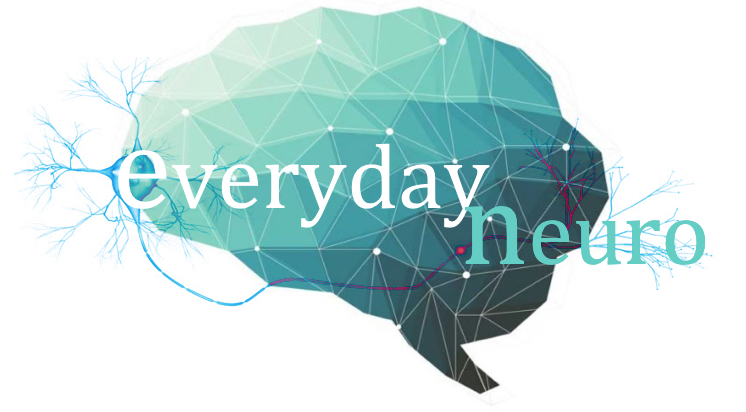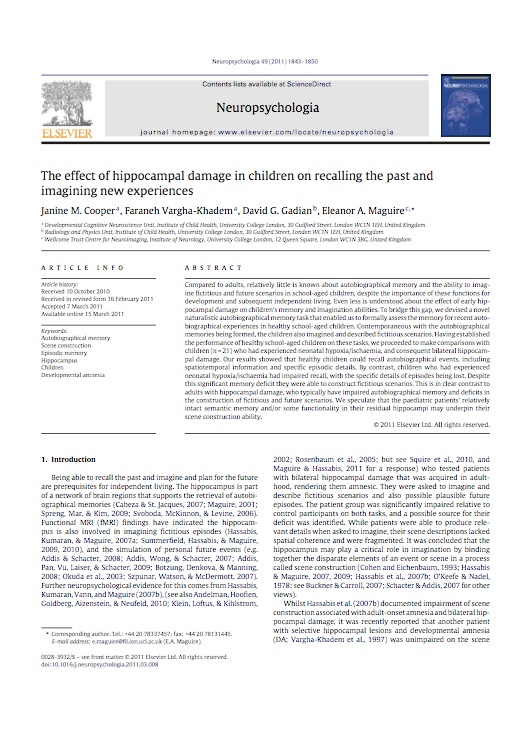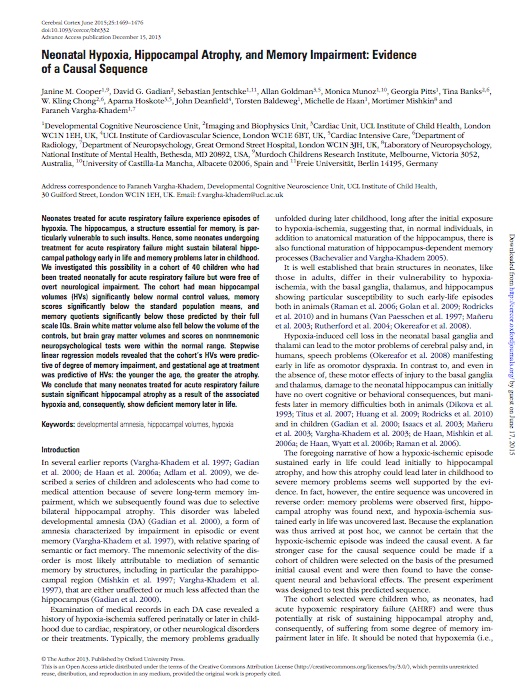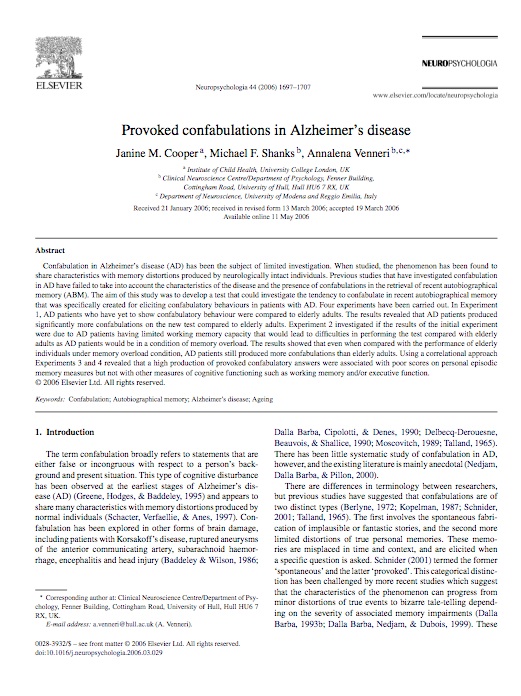Memory
The Effect of Damage to the Hippocampus in Children on Recalling the Past and Imagining New Experiences
This study investigates how damage to areas of the brain that are associated with event memory in childhood, impair the detailed recollection of personal memories about the self but not the ability to imagine fictitious events. This is in stark contrast to adults with similar damage who have impairment in both abilities. This work was in collaboration with Professor Eleanor Maguire and focuses on children living with Developmental Amnesia.
Neonatal Hypoxia, Hippocampal Atrophy, and Memory Impairment: Evidence of a Causal Sequence
Many babies (neonates) that have been treated for acute respiratory failure sustain significant hippocampal atrophy as a result of the oxygen loss to the tissues (hypoxia), and consequently show deficient memory later in life. This pioneering research study was conducted by a world famous developmental cognitive neuroscience team at The Institute of Child Health and Great Ormond Street Hospital, London, UK.
Provoked Confabulations in Alzheimer’s disease
The term confabulation broadly refers to statements that are either false or incongruous with respect to a person’s background and present situation. This type of cognitive disturbance has been observed at the earliest stages of Alzheimer’s dis ease (AD).
The aim of this study was to develop a test that could investigate the tendency to confabulate in recent autobiographical memory and act as a screening tool to elicit confabulatory behaviours in patients with AD.




